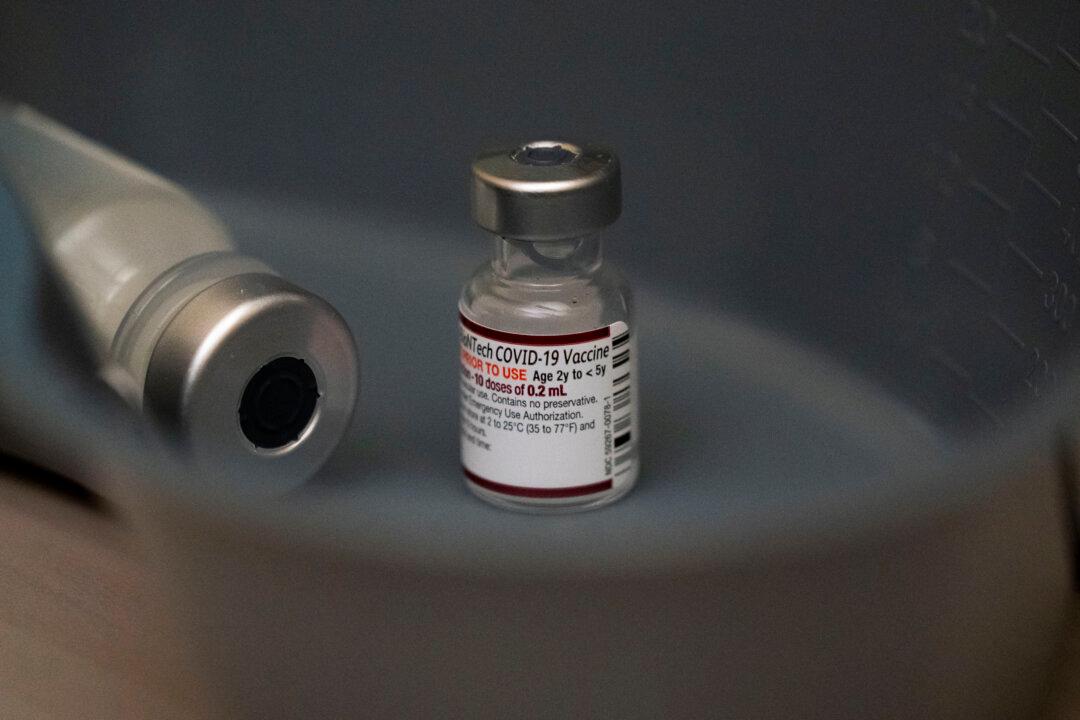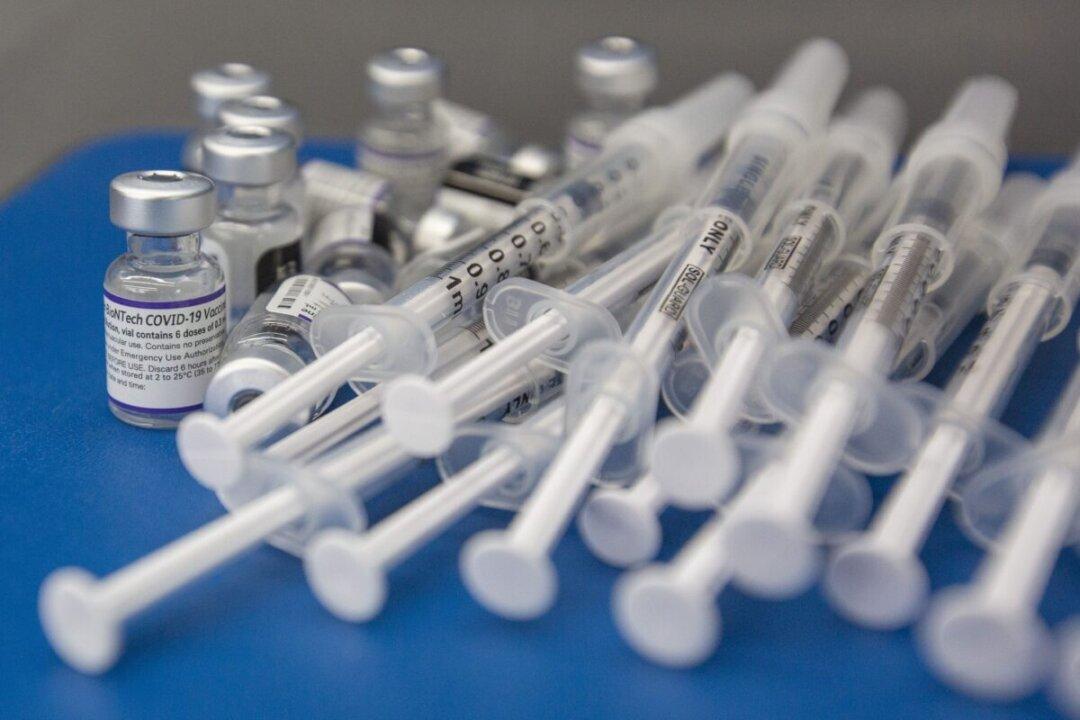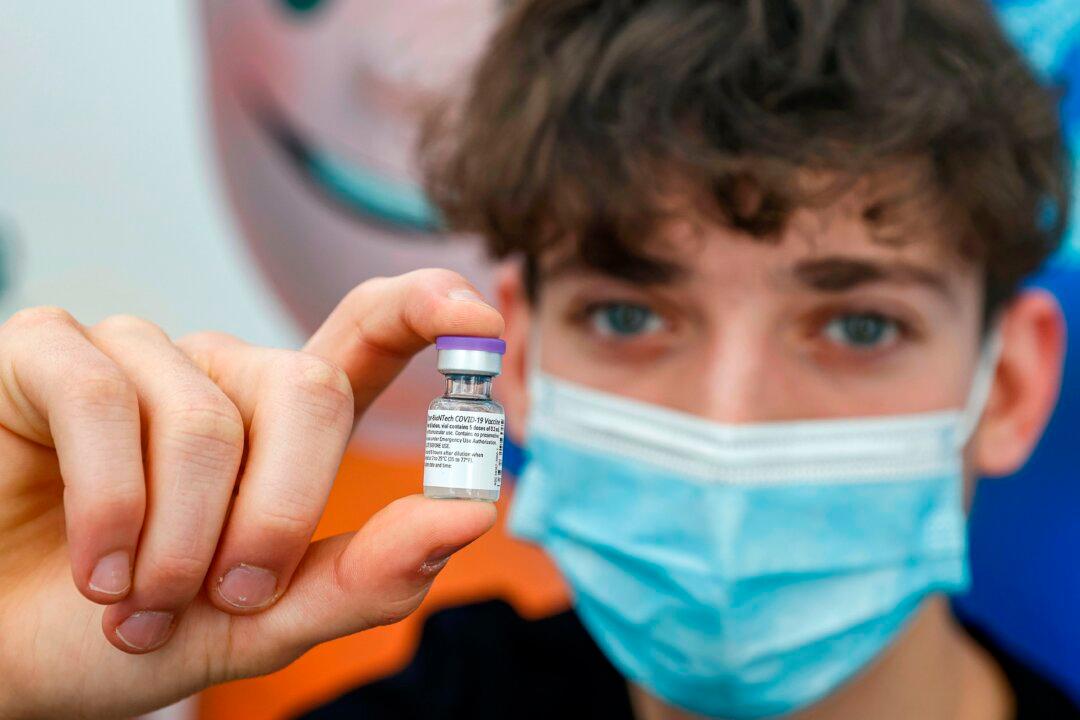The U.S. Food and Drug Administration (FDA) is expected to clear new boosters this week for the Moderna and Pfizer-BioNTech COVID-19 vaccines, even though the companies have not completed trials on human subjects and without the vaccine going before an advisory panel of doctors.
The process of approval was set in motion on June 28 when the panel of doctors that advises the FDA on vaccines met virtually and voted to allow the vaccine-makers to modify their already-approved vaccine boosters to add an Omicron component to target the variant of the virus that is now dominant in the United States.



